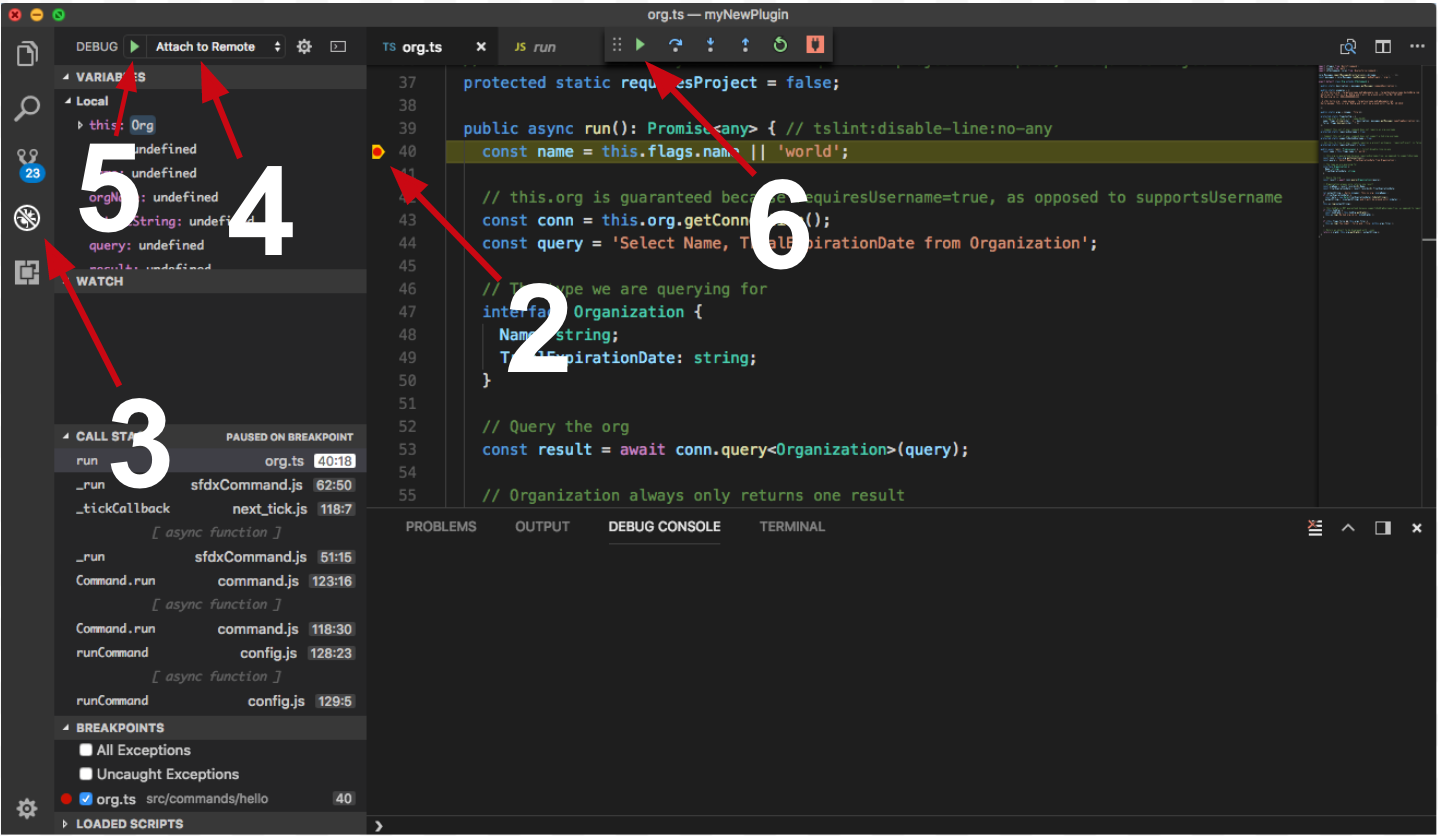A Force CLI plugin for parsing apex logs
$ npm install -g apexlogparser
$ apexlogparser COMMAND
running command...
$ apexlogparser (-v|--version|version)
apexlogparser/0.0.1 darwin-x64 node-v10.15.3
$ apexlogparser --help [COMMAND]
USAGE
$ apexlogparser COMMAND
...apexlogparser <%= command.id %> [-v <version>] [-h <help>] [-r <integer>] [-s <string>] [-l <string>] [-o <string>] [-u <string>] [--apiversion <string>] [--json] [--loglevel trace|debug|info|warn|error|fatal]apexlogparser <%= command.id %> [-v <version>] [-h <help>] [-t <integer>] [-i <string>] [-o <string>] [-f <string>] [-u <string>] [--apiversion <string>] [--json] [--loglevel trace|debug|info|warn|error|fatal]
apexlogparser <%= command.id %> [-v <version>] [-h <help>] [-r <integer>] [-s <string>] [-l <string>] [-o <string>] [-u <string>] [--apiversion <string>] [--json] [--loglevel trace|debug|info|warn|error|fatal]
List ApexLog entries for an org and parameters
USAGE
$ apexlogparser apexlog:list [-v <version>] [-h <help>] [-r <integer>] [-s <string>] [-l <string>] [-o <string>] [-u
<string>] [--apiversion <string>] [--json] [--loglevel trace|debug|info|warn|error|fatal]
OPTIONS
-h, --help show CLI help
-l, --loguser=loguser Name of user that you want to filter by
-o, --operation=operation Operation (Apex/VF/Aura/Trigger/Class) etc. to filter by
-r, --rowlimit=rowlimit [default: 10] Maximum rows to display
-s, --sort=sort [default: desc] Sorting order based on LastModifiedDate
-u, --targetusername=targetusername username or alias for the target org; overrides default target org
-v, --version show CLI version
--apiversion=apiversion override the api version used for api requests made by this command
--json format output as json
--loglevel=(trace|debug|info|warn|error|fatal) [default: warn] logging level for this command invocation
EXAMPLES
$ sfdx apexlog:list --targetusername myOrg@example.com
Total log records returned : 10
Log Id User Id Duration (ms) Log Length (bytes) Operation
StartTime
────────────────── ──────────── ───────────── ────────────────── ─────────────────────────────────
────────────────────────────
07L2F00000CaPbqUAF Log User 126 31657 /apex/MyVFPage
2019-03-22T13:56:57.000+0000
....
...
$ sfdx apexlog:list --targetusername myOrg@example.com -o MyVF
Total log records returned : 10
Log Id User Id Duration (ms) Log Length (bytes) Operation
StartTime
────────────────── ──────────── ───────────── ────────────────── ─────────────────────────────────
────────────────────────────
07L2F00000CaPbqUAF Log User 126 31657 /apex/MyVFPage
2019-03-22T13:56:57.000+0000
....
...
$ sfdx apexlog:list --targetusername myOrg@example.com -l "John Doe"
Total log records returned : 10
Log Id User Id Duration (ms) Log Length (bytes) Operation
StartTime
────────────────── ──────────── ───────────── ────────────────── ─────────────────────────────────
────────────────────────────
07L2F00000CaPbqUAF John Doe 126 31657 /apex/MyVFPage
2019-03-22T13:56:57.000+0000
....
...
$ sfdx apexlog:list --targetusername myOrg@example.com -l "<name of user to filter>" -r 100
Total log records returned : 100
Log Id User Id Duration (ms) Log Length (bytes) Operation
StartTime
────────────────── ──────────── ───────────── ────────────────── ─────────────────────────────────
────────────────────────────
07L2F00000CaPbqUAF Log User 126 31657 /apex/MyVFPage
2019-03-22T13:56:57.000+0000
....
...
See code: src/commands/apexlog/list.ts
apexlogparser <%= command.id %> [-v <version>] [-h <help>] [-t <integer>] [-i <string>] [-o <string>] [-f <string>] [-u <string>] [--apiversion <string>] [--json] [--loglevel trace|debug|info|warn|error|fatal]
Parse a logfile or Logid from an org
USAGE
$ apexlogparser apexlog:parse [-v <version>] [-h <help>] [-t <integer>] [-i <string>] [-o <string>] [-f <string>] [-u
<string>] [--apiversion <string>] [--json] [--loglevel trace|debug|info|warn|error|fatal]
OPTIONS
-f, --logfile=logfile Absolute path to log file
-h, --help show CLI help
-i, --logid=logid Id of the Apex Log to be parsed
-o, --output=output [default: SUMMARY] Type of operation that needs to be parsed
-t, --timethreshold=timethreshold [default: 10] Minimum millisecond threshold to parse and display
-u, --targetusername=targetusername username or alias for the target org; overrides default target org
-v, --version show CLI version
--apiversion=apiversion override the api version used for api requests made by this command
--json format output as json
--loglevel=(trace|debug|info|warn|error|fatal) [default: warn] logging level for this command invocation
EXAMPLE
$ sfdx apexlog:parse --targetusername myOrg@example.com
See code: src/commands/apexlog/parse.ts
We recommend using the Visual Studio Code (VS Code) IDE for your plugin development. Included in the .vscode directory of this plugin is a launch.json config file, which allows you to attach a debugger to the node process when running your commands.
To debug the hello:org command:
- Start the inspector
If you linked your plugin to the sfdx cli, call your command with the dev-suspend switch:
$ sfdx hello:org -u myOrg@example.com --dev-suspendAlternatively, to call your command using the bin/run script, set the NODE_OPTIONS environment variable to --inspect-brk when starting the debugger:
$ NODE_OPTIONS=--inspect-brk bin/run hello:org -u myOrg@example.com- Set some breakpoints in your command code
- Click on the Debug icon in the Activity Bar on the side of VS Code to open up the Debug view.
- In the upper left hand corner of VS Code, verify that the "Attach to Remote" launch configuration has been chosen.
- Hit the green play button to the left of the "Attach to Remote" launch configuration window. The debugger should now be suspended on the first line of the program.
- Hit the green play button at the top middle of VS Code (this play button will be to the right of the play button that you clicked in step #5).

Congrats, you are debugging!


